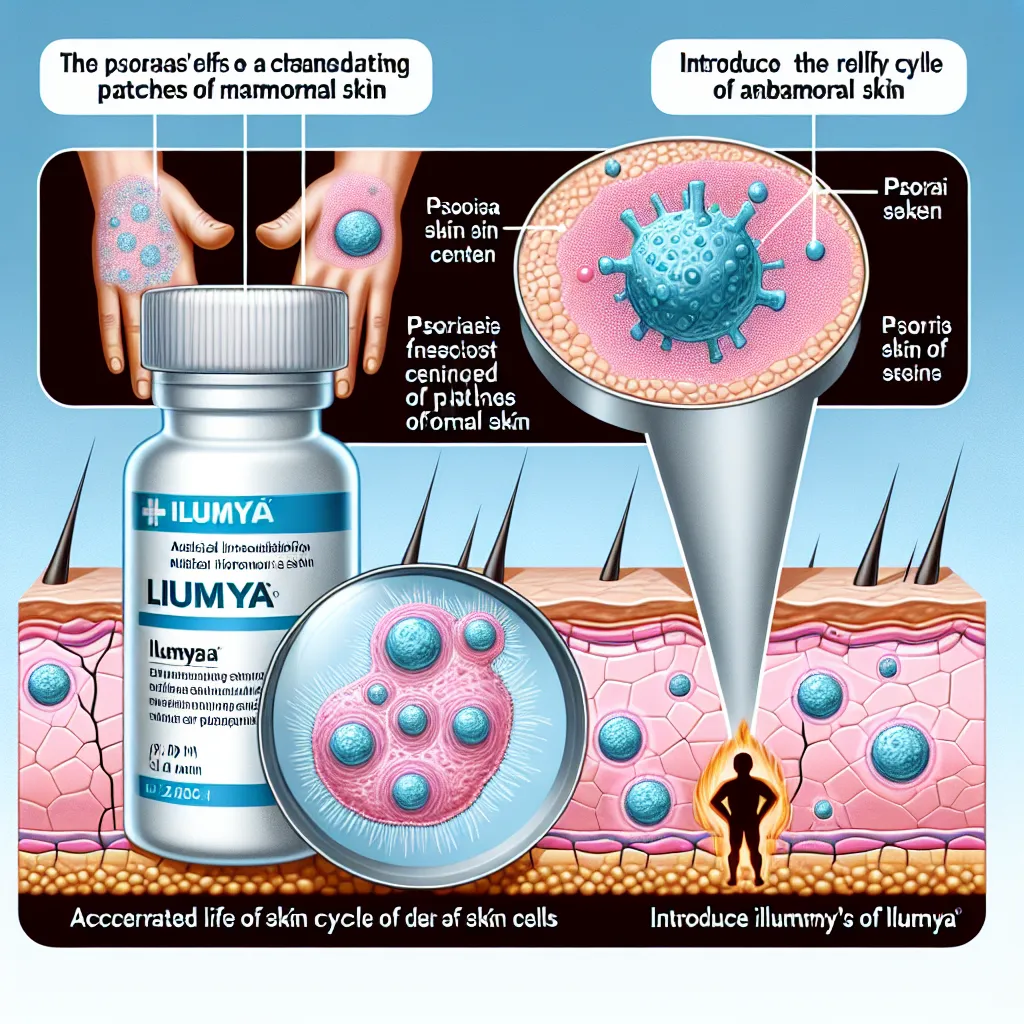Understanding the Causes of Psoriasis and Introducing Ilumya
Understanding the Causes of Psoriasis and Introducing Ilumya
Psoriasis is a chronic autoimmune skin condition that affects millions of people worldwide. It is characterized by the rapid buildup of skin cells, leading to red, itchy, and scaly patches. This article aims to explore the causes of psoriasis and introduce a promising treatment option called Ilumya.
Causes of Psoriasis
The exact cause of psoriasis is still unknown, but it is believed to result from a combination of genetic, immune system, and environmental factors.
Genetic Factors
Psoriasis tends to run in families, suggesting a strong genetic component. Certain genes, such as HLA-Cw6, have been associated with an increased risk of developing psoriasis. However, having these genes does not guarantee that an individual will develop the condition.
It is thought that genetic factors may influence the way the immune system behaves, leading to an overactive response that triggers the rapid growth of skin cells.
Immune System Dysfunction
In individuals with psoriasis, the immune system mistakenly attacks healthy skin cells, causing inflammation and an accelerated production of skin cells. Normally, skin cells take about a month to mature and shed. However, in psoriasis, this process occurs within a matter of days, resulting in the accumulation of skin cells on the surface.
Research suggests that certain immune cells, particularly T cells, play a crucial role in the development of psoriasis. These cells become overactive, leading to the release of inflammatory substances that contribute to the characteristic symptoms of the condition.
Environmental Triggers
While psoriasis has a strong genetic component, environmental factors can also trigger or exacerbate symptoms. Some common triggers include:

-
Stress:
Emotional or physical stress can worsen psoriasis symptoms. -
Infections:
Certain infections, particularly streptococcal infections, can trigger psoriasis or cause flare-ups. -
Injury to the skin:
A cut, scratch, or severe sunburn can lead to the development of psoriasis in the affected area, a phenomenon known as the Koebner response. -
Medications:
Certain medications, such as beta-blockers, lithium, and antimalarial drugs, have been linked to psoriasis flare-ups. -
Smoking and alcohol:
Both smoking and excessive alcohol consumption can increase the risk of developing psoriasis and worsen symptoms.
Introducing Ilumya
Ilumya, also known as tildrakizumab-asmn, is a relatively new treatment option for moderate to severe plaque psoriasis in adults. It is a monoclonal antibody that works by targeting a specific protein called interleukin-23 (IL-23), which plays a key role in the immune system dysregulation seen in psoriasis.
Ilumya helps to normalize the immune response by inhibiting the activity of IL-23, thereby reducing inflammation and the excessive production of skin cells. By targeting a specific pathway involved in psoriasis development, Ilumya offers a more targeted approach compared to traditional systemic treatments.
Ilumya is administered through subcutaneous injections, typically once every 12 weeks after an initial starting dose. The treatment has shown promising results in clinical trials, with many patients experiencing significant improvements in their psoriasis symptoms.
Benefits and Considerations
Ilumya offers several benefits as a treatment option for psoriasis:
-
Efficacy:
Clinical trials have demonstrated significant improvement in psoriasis symptoms, including reduced redness, scaling, and itchiness. -
Long-lasting effects:
With its 12-week dosing schedule, Ilumya provides extended periods of relief, reducing the burden of frequent treatments. -
Convenience:
The subcutaneous injections can be self-administered at home, minimizing the need for frequent visits to healthcare providers.
However, it is essential to consider potential side effects and discuss them with a healthcare professional before starting treatment with Ilumya. Common side effects may include upper respiratory infections, injection site reactions, and diarrhea. It is crucial to follow the prescribed dosage and report any concerning symptoms to the healthcare provider.
Conclusion
Psoriasis is a chronic skin condition with complex underlying causes. While the exact triggers and mechanisms are still being studied, genetic predisposition, immune system dysfunction, and environmental factors all contribute to its development. Recognizing these factors can help individuals manage their symptoms and make informed decisions about treatment options.
Ilumya is an innovative treatment for psoriasis that specifically targets the immune system dysregulation associated with the condition. With its ability to reduce inflammation and normalize the skin cell production process, Ilumya offers new hope for individuals struggling with moderate to severe plaque psoriasis. However, as with any medication, it is important to consult a healthcare professional to determine if Ilumya is suitable for your specific case.
